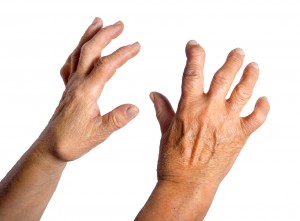

 Rheumatoid arthritis risk may decline with recent urinary tract and gut infections, according to research. A possible explanation may have to do with the way these infections alter the gut microbiome.
Rheumatoid arthritis risk may decline with recent urinary tract and gut infections, according to research. A possible explanation may have to do with the way these infections alter the gut microbiome.
The researchers set out to examine the impact of different infections on the risk of rheumatoid arthritis in nearly 6,500 individuals in south and central Sweden. Of the sample, 2,831 had been newly diagnosed with rheumatoid arthritis and the remaining 3,570 randomly selected matched participants were healthy.
Participants were asked if they have experienced any gut, urinary tract, or genital infection within the last two years. They were also asked if they have had an inflamed prostate or had antibiotic treatment for sinusitis, tonsillitis or other throat infection, or pneumonia during this time.
Gut, urinary tract, and genital infections within the preceding two years were associated with a significantly lower risk of developing rheumatoid arthritis – an impressive 29 percent, 22 percent, and 20 percent, respectively. And having all three types of infection in the preceding two years was linked to a 50 percent lower risk, after adjusting for influential factors.
Recent infections did not impact the risk of rheumatoid arthritis, but having gut, urinary tract, or genital infections within the last two years appeared to have the strongest influence on rheumatoid arthritis.
The research was observational, so it cannot assert a cause-and-effect relationship, but the researchers said their findings “are particularly interesting in light of emerging data, implicating that the microbiome in the gut may play a role in rheumatoid arthritis pathogenesis.”
Rheumatoid arthritis is far more common among women compared to men, prompting researchers to look at the role of infections in the heightened risk of rheumatoid arthritis. One type of infection, largely common among women, is urinary tract infections.
When researchers tested the urine of people with rheumatoid arthritis, they detected a similar protein found in the lining of the joints. The body develops antibodies to fight off the infection, but apparently these also attack the lining of the joints.
Other studies have found that a plant-based diet could improve rheumatoid arthritis, but the reason behind it was not clear. The researchers suggest this style of eating feeds into good bacteria of the colon, meaning, more good bacteria can combat bad bacteria.
Shingles vaccine safe for rheumatoid arthritis patients taking biologic drugs
Shingles vaccine is safe for rheumatoid arthritis (RA) patients taking biologic drugs. Shingles occurs in one in three U.S. adults, with age being a large factor. This is why the vaccine is recommended for those over the age of 50. Rheumatoid arthritis is an autoimmune disease in which the joints are attacked, resulting in stiffness and swelling usually in smaller joints. An estimated 1.3 million Americans live with rheumatoid arthritis and women are twice as likely to develop the condition. Continue reading…
Rheumatoid arthritis can cause hearing loss due to multiple factors
Rheumatoid arthritis can cause hearing loss due to multiple factors, according to a new study. Rheumatoid arthritis affects nearly one percent of the population, and hearing loss prevalence in rheumatoid arthritis is between 25 and 72 percent. The most common type of hearing loss in rheumatoid arthritis is sensorineural hearing loss, which includes synovial destruction of incudostapedial and incudomalleolar joints, rheumatoid nodules, auditory neuropathy, destruction of the cochlear hair cells, and drug-induced ototoxicity. Continue reading…
Copyright © www.orthopaedics.win Bone Health All Rights Reserved